Domestic abuse is seldom the same in every case, and that’s because there are different types of domestic abuse that torment and plague thousands of people all over the world.
Key Points –
- Recognition of the actions that constitute abuse is the first step toward halting it.
- Post-divorce parental alienation is not only recognized as a form of abuse, but in many cases becomes the most damaging and long-lasting.
- Onlookers (usually the children) can suffer lifelong effects from the impact of the trauma on their amygdala.
Clearly, abuse of any type wounds the receiver’s morale, self-image, and often physical self as well. At the same time, abuse of anyone in the family tends to harm everyone, children included.
For example, when Karen was growing up, her father never hit her. Still, watching him berate and batter her mother, and beat also her younger sister, Karen had felt traumatically angry and helpless. Her resultant hyper-reactive emotional system—what some would refer to as an amygdala disorder or maybe even as a borderline personality disorder—has caused her lifelong suffering.
Related: 5 Subtle Signs of Domestic Violence
7 types of domestic abuse
First, a few points to keep in mind:
- Abuse is seldom constant. It’s generally intermittent, interspersed with other healthier and genuinely loving interactions.
- Not all abusive spouses use all forms of abuse. Most of them use just a few.
- Abuse tends to become more severe with stress from external circumstances such as financial problems or alcohol.
- Far too often, receivers of abuse cripple their ability to stop the abuse by engaging in wishful thinking: “Oh, it’s only…” or “He doesn’t really mean it” or “He promised he won’t do it again.”
With these warnings in mind, which of the following seven types of abuse could be possibilities in your family?
1. Control.
A spouse’s attempts to control the partner’s behavior, friends, dressing style, finances, or activities can be a first sign of more abuse potentially lying ahead. Control generally involves telling the partner what she or he can or should not do—enhanced with criticism, threats, and anger.
Controlling behaviors chip away at the receiver’s self-esteem. In addition, by controlling who the spouse can spend time with, an abusive person can isolate their victim from potential supportive friends and relatives until he or she becomes the main or only person in the victim’s world.
Related: How To Deal With An Overly Controlling Partner
2. Emotional manipulation.
The intent of guilt, criticism, anger, and similarly manipulative behaviors may be to hurt the spouse as well as to force compliance. A spouse who attacks the partner’s vulnerabilities threatens to leave or withholds affection and approval as punishment is being emotionally abusive.
Repeated infidelity also falls under emotionally abusive relationship behavior.
3. Verbal abuse.
Words, and also a negative tone of voice, can’t hurt a spouse’s feelings, lower their self-esteem, and erode a sense of personal safety. Demeaning, insulting, or humiliating comments in private, and even worse in front of others, can be strongly emotionally damaging.
Telling hurtful “jokes” about you despite your discomfort and requests to stop, name-calling, swearing, insults, questioning your sanity, or ridiculing your opinions/desires all use words to cause harm.
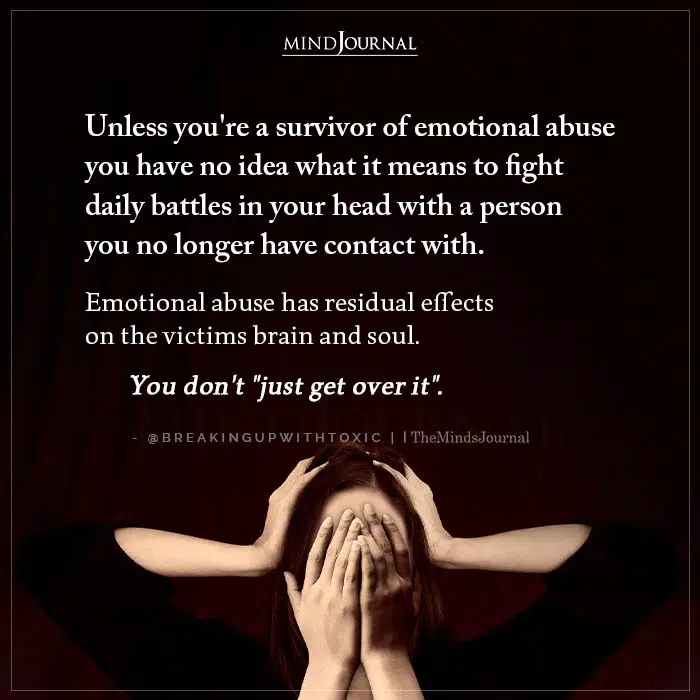
4. Sexual abuse.
Until recently, unwanted or forced sex within marriage was not considered rape. Married victims of sexual abuse still face considerable stigma when coming forward with their sexually abusive relationships.
Sexual abuse includes unwanted sex, withholding sex, forced engagement in any sexual activity that frightens or hurts you, refusing to practice safe sex, or preventing you from using birth control or making decisions about pregnancy/abortion.
Related: Lady Gaga – Oprah Interview: The Lasting Effects Of Sexual Assault
5. Physical violence.
If your partner has physically touched you, hit you, slapped you, punched you, or pushed you, it is critical that you recognize that this is physical abuse. Such abuse tends to become worse over time, so removing yourself and your children from a violent partner may be essential.
Other forms of physical abuse include beating, choking, pinning you down, spitting on you, abandoning you in dangerous places, driving at high speeds, toying with dangerous situations to intimidate you, and refusing to help you when you are sick, injured, or pregnant.
6. Financial abuse.
In a healthy relationship, the partners discuss major financial decisions collaboratively, with both partners’ opinions counting.
In addition, both partners have independent decision-making authority for everyday purchases. Financial abuse occurs when one partner usurps the control.
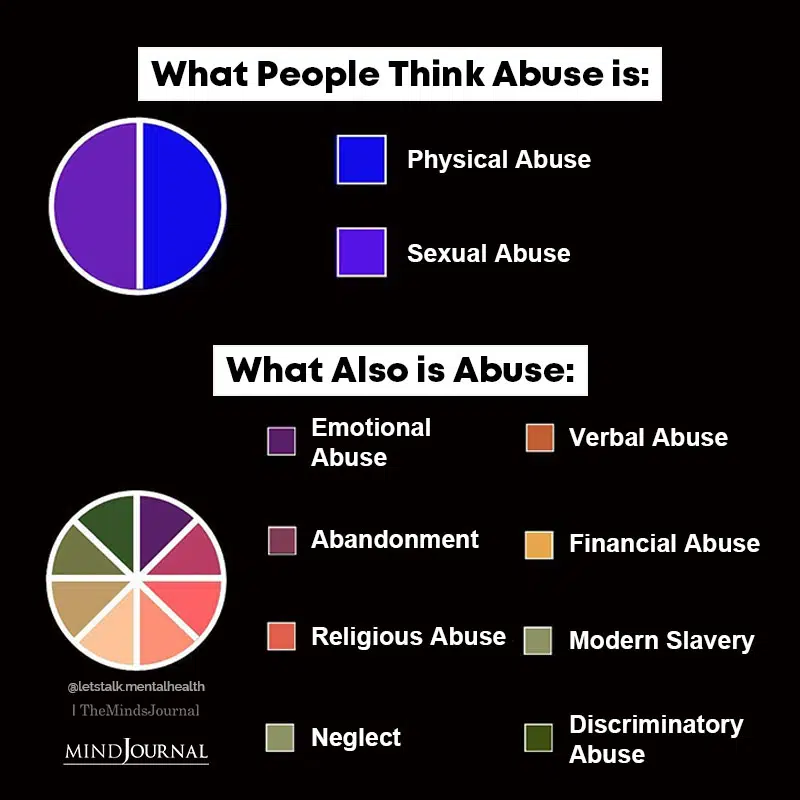
7. Parental alienation.
Children need to receive love from and to feel loving toward both of their parents. If one spouse makes subtle innuendos or even overt comments that result in turning the children against the other parent, these behaviors are called parental alienation. Such behaviors can occur within a marriage. They harm both the children and the targeted parent.
After a divorce, however, such behaviors may begin to include blocking the children from their court-ordered time with the other parent. That’s how parental alienation can slide from mild, or moderate to severe.
At any level, however, alienating children from the other parent by expressing negative attitudes that convey that children should disrespect and dislike the other, distorting information so that small problematic incidents are blown up into signs of severe bad behavior toward the children, telling outright falsehoods about that parent to induce fright or hatred of the parent is now considered one of the most serious forms of abuse.
Related: Parental Alienation Syndrome: What Is It, And Who Does It?
How can you find help as soon as possible?
A two-pronged approach can best help you to recognize abuse of any kind:
- Learn what healthy marital behavior looks like. In my Power of Two book and workbook, I clarify the full set of skills that enable healthy couples to enjoy a long, strong, loving, and safe partnership.
- Study up so you recognize immediately any actions by yourself or your partner that might constitute abuse or that you are beginning to head down the road toward abusive interacting.
When it comes to abuse, ignorance can be dangerous. Information is power. Get it.
Want to know more about the different types of domestic abuse? Check this video out below!
Written By Susan Heitler Originally Appeared On Psychology Today
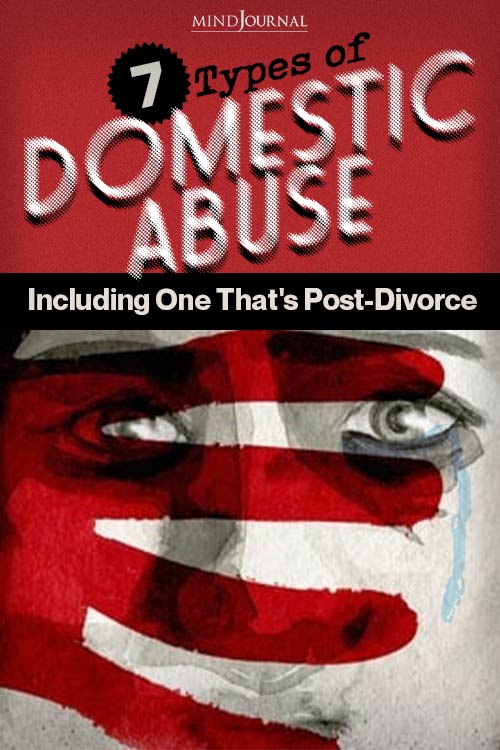
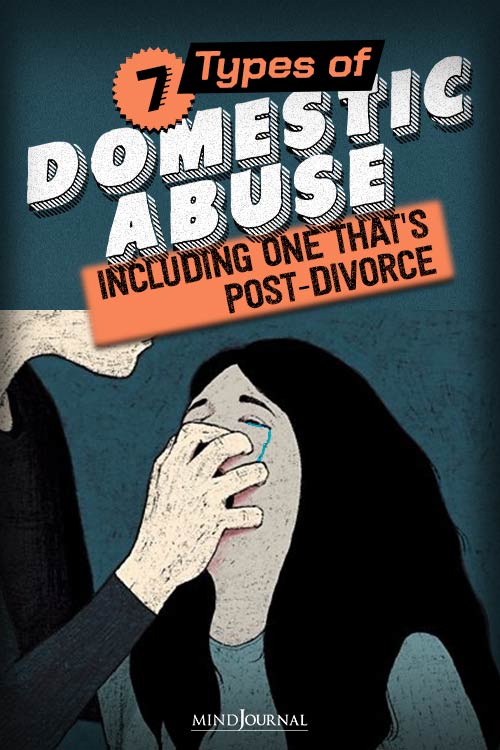
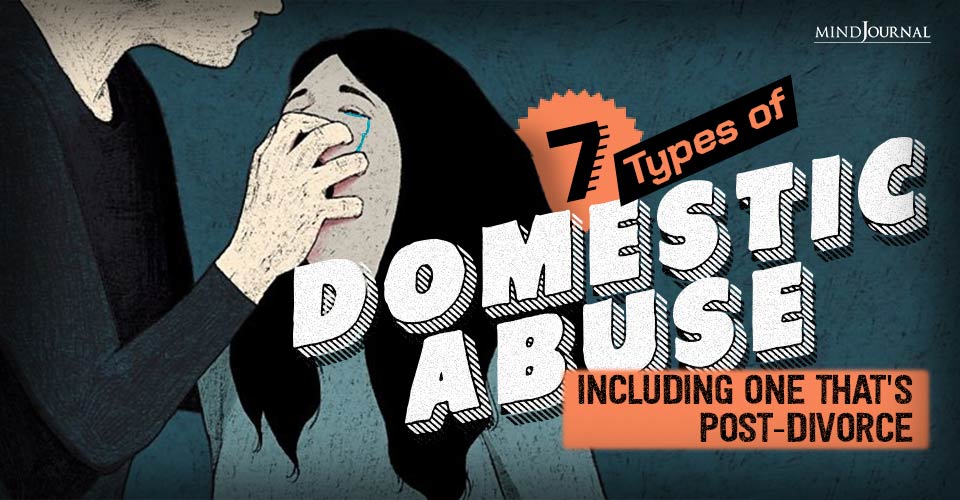







Leave a Reply
You must be logged in to post a comment.